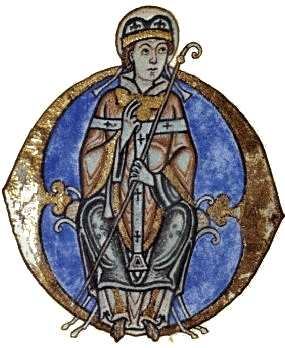"Neque enim quaero intelligere ut credam, sed credo ut intelligam. Nam et hoc credo, quia, nisi credidero, non intelligam. "
("Nor do I seek to understand that I may believe, but I believe that I may understand. For this, too, I believe, that, unless I first believe, I shall not understand.")
He held that faith precedes reason, but that reason can expand upon faith.
If you think back on the earlier lessons about St Thomas Aquinas, you see that this is true even outside of religion. A small child believes that what he sees and touches is real. He believes that what his parents tell him is true. As he gets older, he may question things his parents and teachers have told him. This is part of growing up and if it is done well, the young person comes to know truth by reason rather than by simple belief. He finds out answers for himself. This is always, according to the Catholic Church, a good thing when done properly.
Pope John Paul II, writing about the relationship between faith and reason, said:
What is distinctive in the biblical text is the conviction that there is a profound and indissoluble unity between the knowledge of reason and the knowledge of faith. The world and all that happens within it, including history and the fate of peoples, are realities to be observed, analysed and assessed with all the resources of reason, but without faith ever being foreign to the process. Faith intervenes not to abolish reason's autonomy nor to reduce its scope for action, but solely to bring the human being to understand that in these events it is the God of Israel who acts. Thus the world and the events of history cannot be understood in depth without professing faith in the God who is at work in them.Go on to next section
Faith sharpens the inner eye, opening the mind to discover in the flux of events the workings of Providence. Here the words of the Book of Proverbs are pertinent: “The human mind plans the way, but the Lord directs the steps” This is to say that with the light of reason human beings can know which path to take, but they can follow that path to its end, quickly and unhindered, only if with a rightly tuned spirit they search for it within the horizon of faith. Therefore, reason and faith cannot be separated without diminishing the capacity of men and women to know themselves, the world and God in an appropriate way.
There is thus no reason for competition of any kind between reason and faith: each contains the other, and each has its own scope for action.

No comments:
Post a Comment
Put your initials or something here when you have finished the lesson.